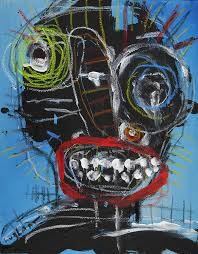I made this confession during a symposium on Pan-Africanism this past Tuesday. What did religion teach you that you later came to know was a terrible lie? Me? That we as Africans are a cursed people. I hang my head low just saying it again. Give me a minute to lift it out of this pit of miseducated shame.
There's a play three of us wrote, Pambazuka Afrika (1995), and in there was a character who explains that Africans are in turmoil because of the curse of Ham. Look it up if you're not familiar with this biblical spin where the Semitic deity produced black people for the express purpose of eternal servitude.
I did not script this part of the play, but I did not question it either. I did the final editing, and I saw nothing wrong with it at the time. We were young and severely miseducated. Rebel-minded as we were (the church banned us for our unholy storytelling), we were still poisoned, and we passed on this poisoned teaching to thousands who came to see the play and never once questioned that part of the script.
Only one person had the guts to question me. Rev. Phyllis Byrd. That woman opened my eyes and gave me water! She saw the play, summoned me to her office at the All Africa Conference of Churches in Westlands, and pointed out just how wrong and twisted that part of the script was. The script also showed the veneration of ancestors as evil. She pointed out too that that was a terrible act of self-hate.
This was my introduction to liberating Black theology, thanks to an African-American woman who settled in Kenya and built a home there. And she loved the arts, had been an off-Broadway actor herself. She went ahead and got us flight tickets to Addis Ababa to stage the play there before an audience of thousands, including Desmond Tutu who hugged my cast and said how he was moved to tears. By then, I had removed the offending teaching.
Let us remember that South Africa's Dutch Reformed Church helped built the pillars of apartheid upon this doctrine of the Curse of Ham. This teaching found its way into many post-colonial African churches, and African Christians preached it enthusiastically decades after independence.
You are a cursed lot, you are a pagan nation, the only favored nation is Israel, and the only way out for you [Africans] is individual salvation... I head this preached eloquently from the pulpit of Nairobi Pentecostal Church, by a Kenyan theologian with PhD and a professor at University of Nairobi.
This is preached in different ways across many pulpits every Sunday. It has made many go for that certain brand of personal salvation that makes for the most selfish individualistic sanctimonious prudes. This brand of salvation makes middle class church-goers think they have broken their personal curse of Ham.
You should see them sing Oh precious is the flow that makes me white as snow. And don't question them about the image of Jesus at the back of their minds as they sing that hymn. He's blue-eyed and blonde and they're not ready to paint him in their own cursed image.
I do not laugh. Look, everyone is entitled to their own spirituality, and if you're really lucky, your bullshit will be called out. I have become a better human precisely because someone was wise and brave and caring enough to point out the bullshit I was fed at a young age when I craved special belonging.




